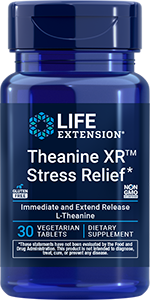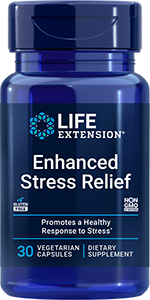Why Should People Exercise
Step 3
Regular exercise can have a profoundly positive impact on anxiety and depression.
People often ask, "Why should people exercise?"....or "Why is exercise important?". In this step you will learn the benefits to exercise in relation to stress, anxiety and depression. You will also begin to take steps to incorporate it into your daily routine.
If you are not used to exercising, getting physical exercise can be a difficult thing to incorporate into your life on a regular basis, however, it is one of the MOST beneficial habits that you can create for yourself. Not only does exercise benefit the body but it benefits the mind as well.
So, tell me, why should I exercise?
Exercise is crucial for people who suffer with stress, anxiety and depressive disorders. Please keep these reasons in mind as you work on making exercise a priority in your life. It is through exercise that you will be able to combat the other negative symptoms that come with stress, anxiety and depression.
All of these are VERY IMPORTANT reasons and will contribute to your recovery!
Benefits to Exercise - Common Forms and Benefits
There are so many benefits to exercise. Exercise is known to be one of the BEST stress reducers! It is not only good for the body but it is also good for the mind. Exercise burns negative stress hormones, therefore reducing the negative effects stress has on the body and mind.
The American Council on Exercise offers a free information sheet called "How Exercise Can Control Stress"
Exercise is important in your recovery process because it will help your body rid itself of excess adrenaline. Your body can only produces so much adrenaline each day and if you are taking steps towards recovery, exercise will help burn off some of that adrenaline so that the excess does not follow you into your practice sessions.
Exercise also increases your natural brain chemicals called endorphins. These endorphins create a feeling that produces a sense of well-being that is positive and energizing. Endorphins also act as your body's natural pain reliever. So it is safe to say that exercise not only helps the mind but the body as well.
Regular exercise has been proven to reduce stress, diminish feelings of anxiety and depression, and is also known to improve your sleep cycle at night. Along with these benefits, exercise offers other benefits that can have positive effects on your health. Some of these would be, lowering blood pressure, strengthening your bones and muscles, strengthening your heart, and reducing unwanted body fat.
Even though exercise has been proven to help with anxiety and depression, it is common for people to underestimate it's power for health and well-being. It is unfortunate that many overlook the long term benefits . Exercising is most likely the last thing you feel like doing when your anxious, and probably more dreaded if you are depressed, but it is so important no matter how you look at it. You have to see it as one of the most important tools in your "recovery toolbox". It is one of those tools that can help you find recovery and keep you balanced when managing the stress in your life.
There are many different forms of exercise that can help alleviate the symptoms associated with anxiety and depression. It's important to find an exercise that you enjoy. If you enjoy the exercise, you will be more likely to make it a part of your new healthy lifestyle. Exercise can be fun!
If you have pre-existing health problems or even if it has been a long time since you were on an exercise routine, it is a good idea that you discuss any new routine with your physician. Getting approval from your physician will help you feel more at ease when doing something new that is physically challenging.
Some common forms of exercise include :
Aerobic Exercise - such as dancing, hiking, tennis, walking (brisk), swimming, cycling, basketball, jumping rope, rebounding, etc.
Flexibility Exercises - such as Yoga type movements and Thai Chi
Strengthening and Toning Exercises - such as calisthenics, free weights, sit-ups, pull-ups, to name a few. A really great strengthening and toning exercise is Pilates. Not only does this strengthen your muscles, it exercises your heart and helps build balance and flexibility.
Progressive Muscle Relaxation Exercises - These exercises are meant to help train your mind and body to come together and train your muscles to relax on command. This exercise is extremely important in helping you overcome an anxiety disorder. Please do not overlook this exercise, it is highly effective when done regularly. To learn more, visit Progressive Muscle Relaxation
Isometric Exercises - These exercises use the muscles in an isolated way. They are easily applied while in everyday situations, including driving, sitting, etc. Please visit Isometric Exercises for some ideas on how to use these exercises effectively.
Meditation and/or Visualization - If, for some reason, you are unable to use any of the above suggested forms of exercise you can practice the exercise of Meditation and visualization. As with progressive muscle relaxation, the more you practice this form of exercise, the better you will become. Medication and visualization are extremely customizable to fit your lifestyle and even your religious, spiritual background. Many people think of meditation as being Yoga and although this is one form of meditation, meditation has goes further back in time than you think. To learn more, visit Visualization Exercises.
Pick an Exercise Plan You Can Work With
When it comes to exercise, you won't do it if you don't enjoy it! So pick an exercise plan that you enjoy. If you enjoy dancing, then dance! If you enjoy biking, then bike! If you enjoy working out to an exercise DVD, then do that! It doesn't matter what you do for an exercise plan, it just matters that you exercise.
Now is a good time to learn progressive muscle relaxation methods or even isometric exercises. These types of exercises, although different from aerobic and strength exercises, have a profound effect on training your muscles to relax. If these exercises are done enough, you can actually train yourself to relax them on command. Imagine that!
Step 3 Actions:
1. Work on incorporating exercise into your daily routine. Spend at least 20 minutes each day on your preferred type of exercise, such as aerobic, strength, or toning exercises. *Consult with your physician prior to doing this, especially if you currently suffer with a physical problem or are currently taking medication for a pre-existing condition.
2. Spend approx. 10-20 minutes each day on your choice of isometric or progressive muscle relaxation exercises.
3. Write in a journal each day, preferably before bedtime, but this can also be done any time of day and more than once if you choose. Don't pressure yourself, just write whatever comes to mind. Leave some blank writing space at the bottom of the page.
4. Read over your journaling. Do you notice thoughts that are particularly negative or sound hopeless? If so, take this time to rewrite those thoughts in a more positive, optimistic, truthful way at the bottom of your journal page. Do this Positive Thought Replacement Homework at least once a day. If your thoughts are racing around and going through a particularly hard time, it helps to do this homework as many times possible throughout the day. As silly as this feels, it is very important that you DO NOT skip this exercise. Repetition is IMPORTANT and will help you get into the habit of becoming more away of your negative inner dialogue.
5. If you are struggling with obsessive thinking, take the time each day to practice visualization exercises and thought stopping exercises.
6. When you have developed a good routine of physical exercise each day, then it's time to move onto Step 4 - Diet and Mental Health. Do not move forward until you are ready!
Return from Why Should People Exercise to Sound-Mind.Org Homepage
Guided Steps to Recovery
Natural Supplements
Want to recover without using medication? There are many different kinds of supplements that are available and very effective in helping people combat the physical symptoms of anxiety.


